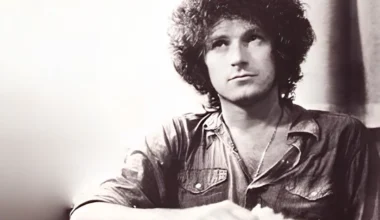Led Zeppelin was never able to get a break from critics during the height of rock excess. The critics criticized the band’s debut album and believed they were bottom-of-the-barrel rock and roll. Despite the band producing enormous epics like “Stairway to Heaven,” the fans continued to cry for the release of the band’s next album. With Houses of the Holy, the band transitioned, marking the end of their self-titled phase in their career.
Zeppelin focuses on broadening their musical horizons by incorporating genres like funk and world music throughout the album, avoiding becoming too mired in blues history too frequently. “D’Yer Maker” unsettles John Paul Jones, yet “Over the Hills and Far Away” and “The Rain Song” endure as standards.
Though nearly every member of the band contributed to this dubious song, Jones blames John Bonham for its wonky beat. In Led Zeppelin FAQ (via Cheatsheet), he mentioned, “It would have been all right if Bonham had worked at the part.” The whole point of reggae is that the drums and the bass have to be very strict about what they play. And he wouldn’t be, so it sounded dreadful.” When compared to all the other tracks on the project, there’s something tonally odd about the song. Robert Plant is making his best attempts at playing a reggae-influenced song.
Bonzo’s drumming feels out of place in this song compared to his usual style. It seems as though the song is stumbling from one verse to the next without ever settling down. This is because Bonham’s style of playing slightly offbeat never worked on this song. After all, reggae music was always locked into a tight groove. Bonham’s distinctive behind-the-beat approach to music indeed gave him prominence in Led Zeppelin. Bonham’s off-grid drumming didn’t hit every beat but always infused the record with a distinct and memorable “feel.” This infusion of life (the song) pulsated beyond anything confined to a mere sheet of music.
Jimmy Page consistently played ahead of the beat while Jonesy led straight up the middle of the song. That sort of off-kilter balancing is the whole point of Zeppelin’s power. “Black Dog,” where every member gives their all between Plant’s sobs, is the ideal illustration of their synergy. The entire project might have failed if any other musician had played one of those crucial parts.
Regardless of “D’yer Ma’ker’s” failure, the group was committed to taking risks and exploring novel avenues for the remainder of their career. Physical Graffiti’s other songs, such as “Kashmir,” were epics about broadening one’s horizons. Even post-peak, Zeppelin’s synthesizers emerged in albums like In Through the Out Door. Bonham subdued the beat in “Fool in the Rain.”
Despite lukewarm reception upon release, “D’yer Ma’ker” explodes with a message far more potent than any perceived artistic apathy from Led Zeppelin. Zeppelin was never going to be a one-trick pony, and they didn’t mind trying new things, even if they ended up being a huge failure.









3 comments
I wasn’t a fan when I first heard it but over the years I have come to like it. A bit like hotdogs dividing fans I always thought they sounded like they were having a ball when they recorded this one
I don’t know where Jonesey is coming from with his opinion of Bonham’s drums on D’Yer Maker, but being a drummer I consider it a Bonham masterpiece. Every fill is great especially the fills going into and out of the solo and the fills he puts in at the end. Love it all. If that’s not trying hard enough as he puts it I don’t know what is. Perhaps he wanted it to be more authentic reggae, but that it’s not, is what makes it so magnificent.
I don’t know what Jonesey is talking about. Bonham’s drum part is magnificent on this track. Every fill is great , especially going into and out of the solo section and the part at the end is really perfect. Perhaps Jones wanted it to sound more like an authentic reggae song, but what Bonham did is what makes it so great.